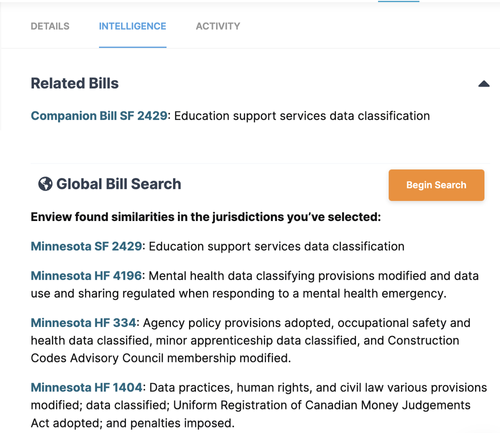There are only so many days in each state legislative session—your public policy team needs to make every day count.
At the beginning of a session, you’re focused on deadlines—finalizing bill language, getting your bill in front of committee chairs, earning support for your issue. But at the halfway mark, the focus shifts and it’s all about reaching the finish line, convincing members of different parties to vote for your bill when it hits the floor.
An organized legislative session strategy can help you stay in the game—and advance your issue—until the very end. Even if your bill is dead in the water during the second half of the session, you can still make an impact, especially if you use a legislative tracking system to guide your game plan.
To help you make the most of every single day in session, we’re highlighting three legislative tactics to keep in mind.
Tactic 1: Stay on Top of Legislation Still in Play
Once the session is halfway over, it may be clear your bill won’t be the one that passes and becomes a law. But you can still fight the good fight.
Did another senator sponsor legislation similar to yours? Did a representative “Frankenstein” a bill so it includes your bill too? You can use a legislative tracking system to find out.
In Plural, for example, you can perform what’s called a Global Bill Search. The solution uses artificial intelligence to compare your proposed legislation to other bills being considered in the current session, enabling you to find ones like yours championing the same issue.
Soon, you will also be able to do a Possible Omnibus Search, which reveals if your bill has been packaged together with several measures into a larger bill, called an omnibus. (Plural currently offers this feature for Minnesota and plans to expand it to all states.) The solution scans the language in your bill and matches it with similar text in other bills.
If you’re unaware of the legislation still in play this late in the session, you could miss out on a chance to advance your issue. Your public policy team can use a legislative tracking system to stay organized and lend support to these similar bills.

Tactic 2: Make a Team Member Your Early Warning System
At this later stage of a legislative session, members and senators may schedule last-minute meetings and make behind-the-scenes deals you can’t know about without some extra effort.
Keeping an ear to the ground to learn of the latest developments will help your public policy team be ready to take action. Have one person on your team take on this important role to help you remain informed. The team member reaches out to colleagues to ask if they’ve heard anything and contacts everyone on the committee reviewing your bill before reporting back with what they discover.
Time is of the essence, so email is the wrong tactic for collaborating with your public policy team. Instead, consider software like Plural, built specifically to facilitate collaboration.
The solution’s Workspaces feature allows you to capture relevant notes and easily alert your team about pressing action items. You can also find the contact information for key senators or members right in the solution, saving you time searching for policymakers outside the committee who may have influence.
Tactic 3: Organize Your Public Policy Strategy for Next Session
As the session winds down, there’s still work you can do to advance your issue, especially for the next session. (There’s also a small chance your bill may be revived and end up passing in a special session called after the regular session ends, so there’s that.)
Fine-tuning your strategy based on what you learned during this session can help you win next time. One helpful strategy is to export the relevant data—tags, notes, contacts—from your legislative tracking system into a spreadsheet for analysis. If you’ve been using Plural throughout the session, this step should be seamless.
Then, you can review all of the data you’ve tracked, organizing key tactics and measuring results to improve your strategy for next time. So your team can seize the day another day.

